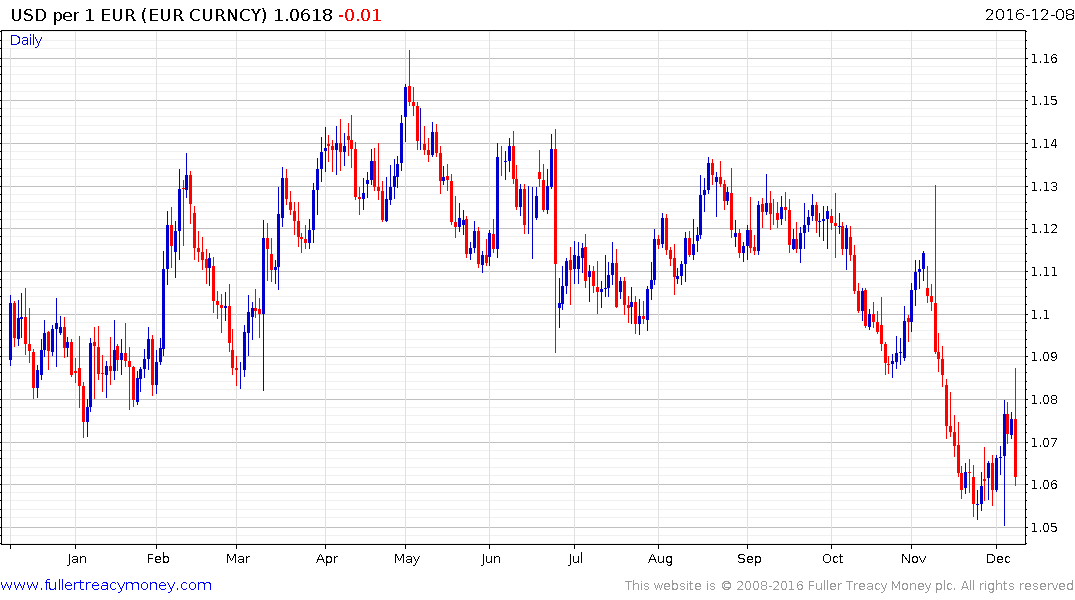Euro Slides With Bonds on ECB Stimulus Signal; U.S. Stocks Mixed
This article by Stephen Kirkland and Lukanyo Mnyanda for Bloomberg may be of interest to subscribers. Here it is in full:
The euro tumbled with bonds as Mario Draghi signaled he stood ready to add to stimulus if a proposed reduction in the current level of asset purchases fails to shore up the economy. U.S. stocks fluctuated near all-time highs.
The European Central Bank’s pledge to cut bond buys while extending quantitative easing until the end of 2017 initially sent the euro higher. The currency reversed after the president kept the option open to add purchases. European stocks rallied with emerging-market equities. Yields on sovereign debt across Europe climbed and Treasuries fell. Oil advanced above $50 a barrel in New York.
“They’ve left themselves a degree of wiggle room between now and the end of March to say that if conditions are sufficient” they will maintain the current stimulus, said Jeremy Stretch, head of
Group-of-10 foreign-exchange strategy at Canadian Imperial Bank of Commerce in London. “There was clearly a degree of surprise in terms of the reference” to the cut from April, he said.
The euro slumped 1.1 percent to $1.0631 as of 10:15 a.m. in New York. The Stoxx Europe 600 Index jumped 1 percent, while the yield on 10-year Italian bonds climbed 11 basis points to 2 percent.
German two-year notes gained the most in more than two weeks as Draghi said the ECB will be buy assets yielding less than the deposit rate. The yield fell five basis points to minus 0.72 percent, the biggest decline since Nov. 22.
The S&P 500 Index slipped 0.1 percent after closing on Wednesday at a record high.
As I try to keep track of what is a swiftly evolving situation I am put in mind of fiddlers on the deck of the Titanic as it went down. The ECB has a clearly defined mandate to target inflation but without fiscal stimulus which is controlled by governments it has proven near impossible to foster in the manner they can measure. Meanwhile the political fabric that has held the currency union together is fraying and the ECB has no choice to continue to inject additional liquidity and to continue to buy the bonds of countries than may no longer be in the currency union a year from now. To do otherwise would only hasten the currency unions eventual demise but additional liquidity is unlikely to avert a crisis.
Massive voter disaffection with the status quo might be viewed as a symptom of the problem. Fiscal austerity for over a decade where living standards have shrunk and a generation have been forced to choose between the degradation of unemployment or exile have left people seeking change. The Euro pulled back today on the realisation that the Italian opposition see an opening to seize control and are trying to force a snap election.

If the Euro breaks down or more importantly is devalued significantly that should result in nominal stock prices rallying. The Euro Stoxx Index broke out to new highs today reflecting the downward pressure on the currency. While the political situation is currently even more dire, this stock market response is quite similar to post Brexit bounce in UK equities and the rally in Eurozone equities that greeted the initial big decline in the Euro from early 2015. Hedged exposure to the Eurozone stock markets is



